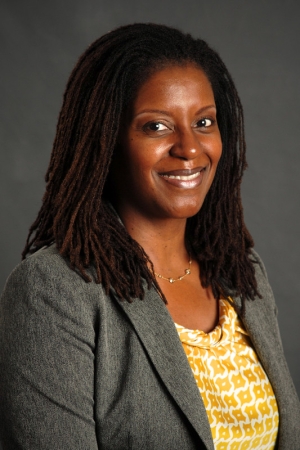Lincoln to Lead New Academic Center in Geriatric Social Work
October 24, 2013 / by Vincent Lim- Giving
- Research
Much like the rest of the United States, Los Angeles is growing older. Its older adult population is projected to double by 2030. Compounding the problem is a looming shortage of geriatric social workers the National Institute on Aging estimates will need to increase 50 percent by 2020 to keep pace. Yet, the country’s accredited schools and programs of social work often struggle to recruit and graduate enough students to handle the demand.
As part of an effort to build a workforce of social workers trained and educated in geriatrics, and to translate new knowledge into practice and policy, the Gerontological Society of America (GSA) and The John A. Hartford Foundation have selected the USC School of Social Work to establish a Hartford Academic Center of Excellence in Geriatric Social Work. Among its many activities, the new center will focus on building relationships with local health and social service professionals, and form regional consortia of social work field agencies serving older adults to support skill-building opportunities for personnel.
“The USC School of Social Work has been developing programs of research and community outreach through our Roybal Institute on Aging for the past five years,” Dean Marilyn Flynn said. “With the deeply welcomed opportunity to establish a Hartford Academic Center of Excellence in Geriatric Social Work, we will now be able to build a powerful curriculum in this area, add to community capacity for serving older people, and introduce innovative technologies for teaching and learning.”
Associate Professor Karen Lincoln, a scholar of minority aging, will lead the new academic center whose mission will be to develop culturally competent practitioners and scholars in geriatric social work to serve and advocate for minority older adults at all levels of practice and policy.
“I’m pleased GSA and the Hartford Foundation have put their confidence in USC’s leadership in the areas of wellness and aging among minority older adults to prepare future generations of sorely needed social workers capable of serving our most vulnerable,” Lincoln said. “This is a great opportunity to share our expertise and engage the practice community in a way that advances evidence-based knowledge and boosts education and training.”
In Los Angeles, the ever-graying demographics have meant an increase in the number of older racial and ethnic minority residents among the general population who face unique challenges in terms of economic insecurity and declining physical and mental health. Training and research at the Hartford Academic Center of Excellence in Geriatric Social Work at USC will focus specifically on African-American, Latino and Chinese populations.
“We’re in an ideal location in Los Angeles,” Lincoln said. “We have an ethnically diverse population, ethnically diverse providers and ethnically diverse students.”
She believes the school is well equipped to prepare students for careers in aging and support the development of the center.
“The USC School of Social Work has a long history of involvement in aging,” Lincoln said. “We have a very robust faculty in aging.”
Lincoln, a Hartford Faculty Scholar, maintains an active research portfolio, while still finding time to teach graduate courses, advise and mentor graduate students and emerging scholars, and provide service to the university and the community. She is also founder and chair of Advocates for African American Elders at the USC Roybal Institute on Aging, which recently received a grant from the California Wellness Foundation to engage in community outreach and inform policymakers and opinion leaders on healthy aging issues impacting African-American seniors in Los Angeles.
Other prominent scholars in the field of gerontology and social work will comprise the new center’s faculty, including Iris Chi, Maria Aranda, Maryalice Jordan-Marsh, Susan Enguidanos, Benjamin Henwood and Dawn Joosten.
The school’s comprehensive and innovative curriculum provides a myriad of opportunities for students interested in studying aging issues, including an Older Adults sub-concentration within the Master of Social Work program and a dual-degree program in gerontology, which is a collaborative effort with the USC Davis School of Gerontology—the oldest and largest school of gerontology in the world. At the doctoral level, PhD students enjoy opportunities to work with leading scholars who provide foundational knowledge and expertise in qualitative and quantitative methods for aging research.
GSA, with support from The John A. Hartford Foundation, has now funded five academic centers in geriatric social work to provide exemplary leadership in training future generations of geriatric social work practitioners and faculty. Centers at Boston College and the University of Michigan were the first two designated Hartford Academic Centers of Excellence in Geriatric Social Work. The three other centers at Hunter College, University of Washington and USC were selected through an open application process.
To reference the work of our faculty online, we ask that you directly quote their work where possible and attribute it to "FACULTY NAME, a professor in the USC Suzanne Dworak-Peck School of Social Work” (LINK: https://dworakpeck.usc.edu)
